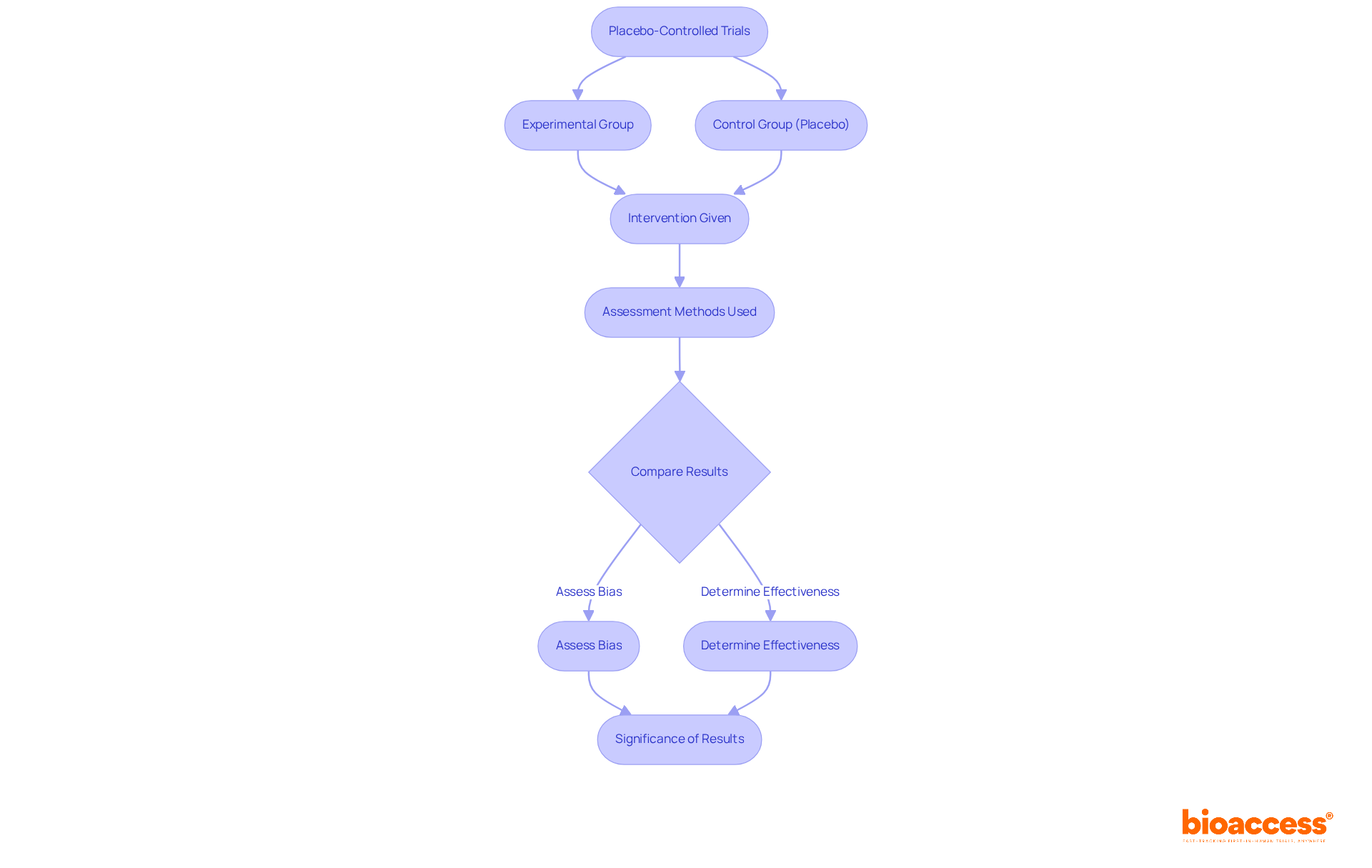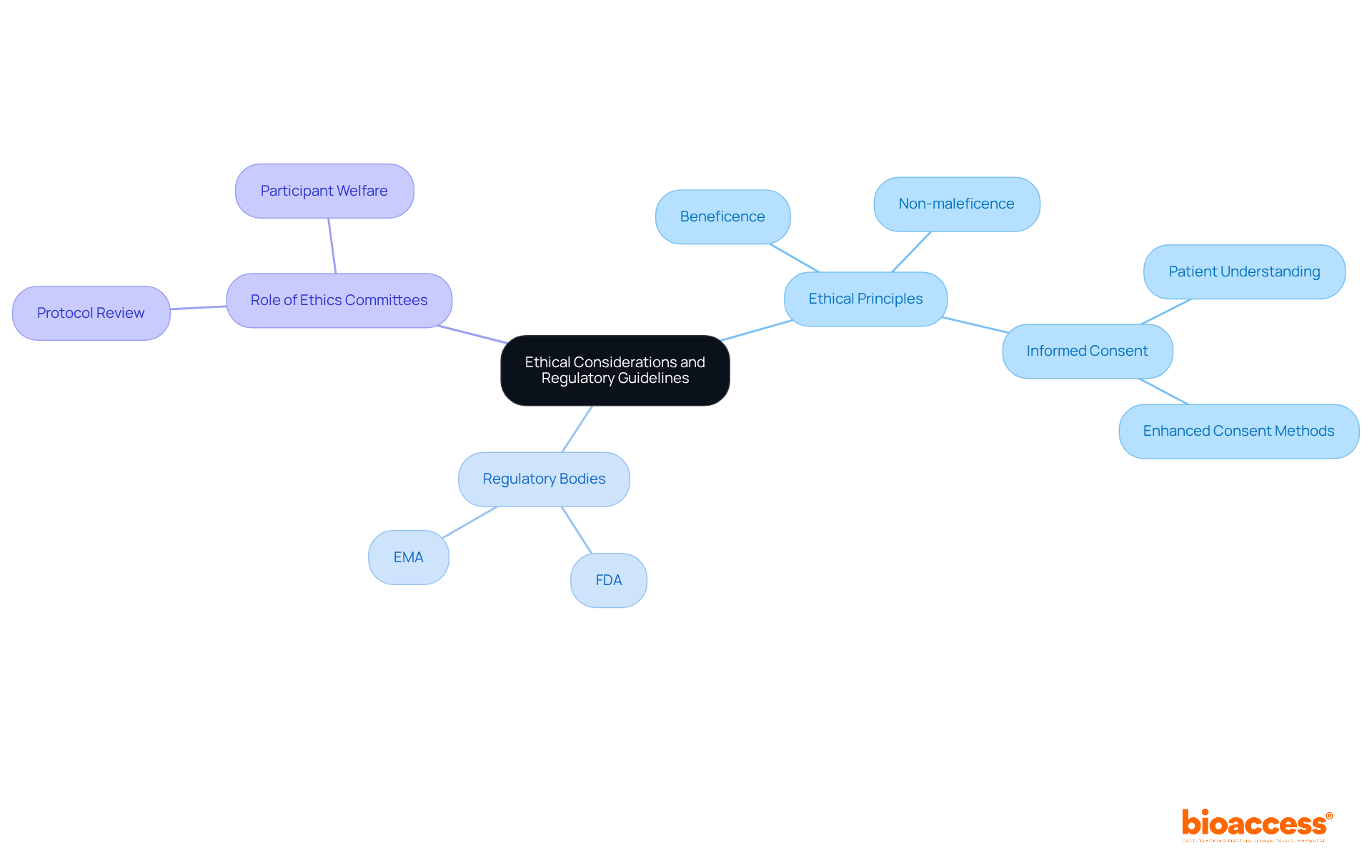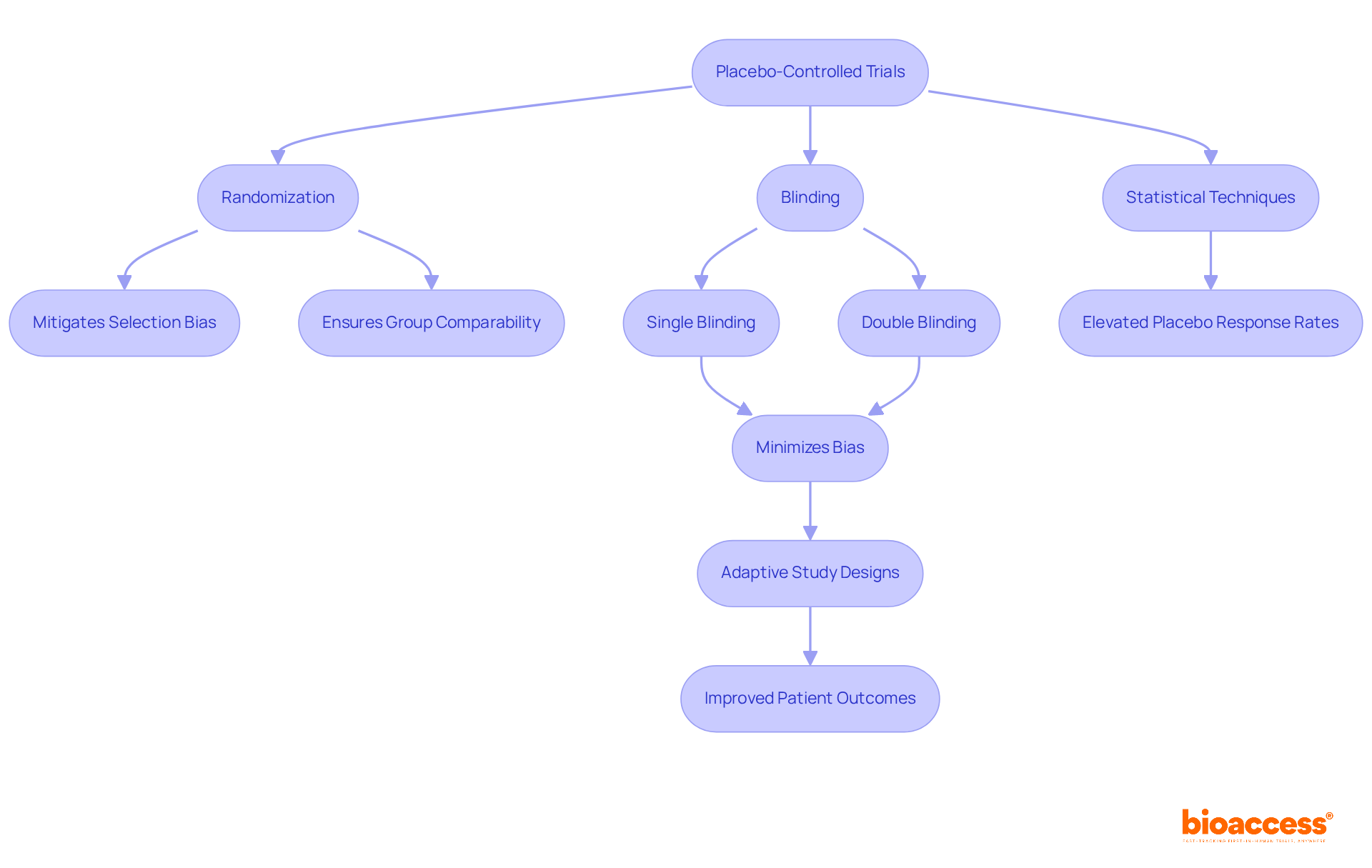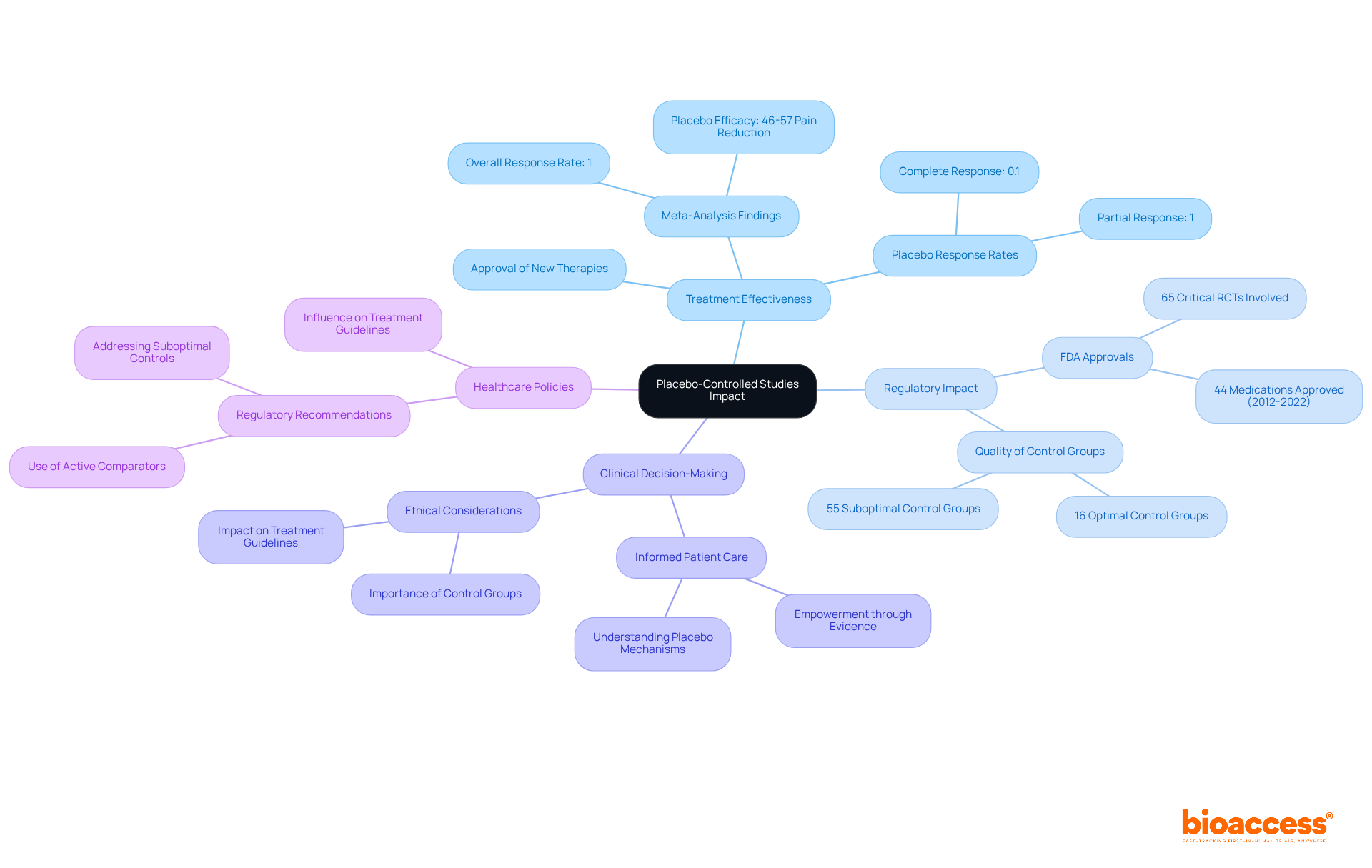


Placebo-controlled trials are vital in clinical research, providing a reliable method for assessing the true effectiveness of interventions by comparing outcomes between groups receiving the treatment and those receiving a placebo. These trials minimize bias and enhance the credibility of results, which is crucial for informing clinical practice and regulatory decisions. Their significance is underscored by their role in drug approvals and in understanding the interplay between pharmacological effects and the placebo response. By employing such rigorous methodologies, researchers can ensure that findings are not only valid but also applicable in real-world scenarios.
Placebo-controlled trials are pivotal in clinical research, serving as essential tools for discerning the true efficacy of medical interventions. These studies not only minimize bias but also reveal the intricate dynamics between patient expectations and therapeutic outcomes. As reliance on these trials increases, so too do the ethical dilemmas and regulatory challenges that accompany their implementation. Researchers must navigate the delicate balance between rigorous scientific inquiry and the moral imperative to protect participants, particularly in light of the complex placebo effect.
Studies that are placebo controlled represent a critical component of clinical research. In these placebo controlled studies, one group of participants receives the experimental intervention while another group receives an inactive substance, the placebo. This design is essential for accurately assessing the true effectiveness of an intervention in a placebo controlled manner by comparing the results between the two groups. The significance of these experiments lies in their ability to minimize bias, allowing researchers to ascertain whether the observed effects stem from the intervention itself or external influences. By establishing a clear baseline, studies that are placebo controlled yield robust evidence that can significantly impact clinical practice and regulatory decisions.
Recent studies underscore the vital role of placebo controlled experiments in evaluating treatment effectiveness. For instance, findings indicate that the placebo response can account for up to 40% of the observed therapeutic benefits in certain cases, emphasizing the necessity for meticulous study designs that accurately capture this phenomenon. Moreover, the success rate for both solely placebo-controlled and enhanced placebo-controlled studies has reached an impressive 100%, demonstrating their reliability in medical environments.
Expert opinions further accentuate the importance of these studies in clinical research. They assert that understanding the placebo effect is crucial for interpreting therapeutic outcomes, as it reveals the complex interplay between pharmacological interventions and patient perceptions. As we look to 2025, the relevance of placebo-controlled studies remains paramount, especially as researchers investigate innovative approaches that incorporate psychological and contextual elements to improve patient care.
Illustrative examples of successful trials that are placebo controlled highlight their influence on treatment efficacy. Notably, research in the realm of obsessive-compulsive disorder (OCD) has shown that the overall effect size is modest at 0.32, with more substantial effects observed in clinician-rated scales compared to self-reported measures. Additionally, considerable heterogeneity in placebo effects has been identified, with an I-square value of 96.1%, indicating variability across studies. These insights not only inform clinical practice but also guide regulatory decisions, ensuring that new therapies are both effective and ethically sound.

Ethical considerations in studies that are placebo controlled are paramount, revolving around the principles of beneficence, non-maleficence, and informed consent. Researchers must ensure that participants are fully aware of the study's nature, including the possibility of receiving a sugar pill.
Regulatory guidelines, particularly from the FDA and EMA, mandate that the use of a control group is justified, especially in placebo controlled studies when no current remedy exists. Furthermore, ethics committees play an essential role in reviewing study protocols, ensuring that the rights and welfare of participants are prioritized.
Navigating these ethical waters is crucial for researchers to maintain trust and integrity in their studies.

Studies that are placebo controlled fundamentally depend on randomization and blinding to enhance the credibility of their results. Randomization is essential, as it assigns participants to treatment or placebo groups in a manner that mitigates selection bias, ensuring that the groups are comparable. This process is vital for preserving the integrity of experimental results. Blinding, whether single or double, further minimizes bias by preventing both participants and researchers from knowing group assignments, which is crucial for unbiased reporting and assessment of outcomes.
For instance, in a study assessing the efficacy of primary arthroscopic Bankart repair, randomization was employed to compare outcomes between patients receiving the repair and those undergoing lavage alone. The outcomes revealed a notable decrease in the likelihood of repeated instability, emphasizing the significance of thorough study design. Notably, the improvement in pain scores in the active group was 38.0% attributable to the placebo controlled effect, underscoring the necessity of controlling for such effects through robust methodologies.
Adaptive study designs also enhance study efficiency by permitting adjustments based on interim analyses. This flexibility can lead to improved patient outcomes and more effective treatment strategies. Specific statistical techniques have been suggested to address elevated placebo response rates, which are frequently cited as obstacles in research studies.
Ultimately, randomization must ensure that blinding is maintained throughout the necessary time period, as this is critical for minimizing bias. Understanding and implementing these robust techniques are crucial for researchers aiming to conduct ethical studies that yield reliable and actionable data.

Studies that are placebo controlled are pivotal in shaping clinical practice, providing robust evidence regarding the effectiveness and safety of new therapies. Positive outcomes from these trials can lead to the approval of innovative treatments, while negative results often result in the discontinuation of ineffective alternatives. A meta-analysis revealed that the overall response rate in control groups for advanced solid tumors was a mere 1%, underscoring the necessity of thorough testing in evaluating treatment viability. Furthermore, reports indicate that the mean pain reduction from placebo cream ranges from 46% to 57%, demonstrating the efficacy of placebo in pain management.
These studies not only enhance the medical knowledge base but also empower clinicians to make informed decisions regarding patient care. The implications of study outcomes extend beyond individual research; they influence treatment guidelines and inform healthcare policies. Regulatory recommendations emphasize the importance of utilizing optimal control groups to ensure accurate evaluations of drug effectiveness, highlighting the ethical considerations inherent in study design. Between January 2012 and October 2022, the FDA approved 44 systemic rheumatic disease medications, based on 65 critical randomized clinical studies, illustrating the significant impact of placebo-controlled studies on the rates of drug approvals.
Expert opinions assert that comprehending the outcomes of trials that are placebo controlled is vital for both researchers and practitioners. The interplay between pharmacological effects and inert responses can profoundly impact therapeutic strategies, as evidenced by findings indicating that up to 72% of outcomes may stem from factors beyond the medication itself. As noted by Harald Walach, the predominant element in responses following pharmacological treatments is the placebo effect, fueled by high expectations and conditioned responses. This understanding is essential as healthcare professionals navigate the complexities of clinical decision-making, ensuring that patient care is firmly rooted in reliable evidence.

Placebo-controlled studies are foundational to clinical research, offering essential insights into the effectiveness of new interventions. By juxtaposing the outcomes of participants receiving an experimental treatment with those given a placebo, researchers can accurately assess the treatment's true impact while minimizing bias. This rigorous methodology not only bolsters the credibility of findings but also significantly influences clinical practices and regulatory decisions.
Key arguments throughout the article emphasize:
The discussion highlights how these studies unveil the complexities of the placebo effect and its considerable influence on therapeutic outcomes. Moreover, the implications of these trials extend beyond individual studies; they inform treatment guidelines and shape healthcare policies, ultimately enhancing patient care.
In reflecting on the importance of placebo-controlled trials, it becomes evident that they represent not merely a methodological choice but an indispensable element of ethical and effective clinical research. As the medical landscape evolves, embracing the insights derived from these studies will be crucial for both clinicians and researchers. A steadfast commitment to understanding and implementing robust placebo-controlled designs will lead to improved patient outcomes and a more reliable medical knowledge base, underscoring the necessity for continued exploration in this vital area of healthcare.
What are placebo-controlled trials?
Placebo-controlled trials are clinical studies where one group of participants receives an experimental intervention while another group receives an inactive substance, known as a placebo. This design helps assess the true effectiveness of the intervention by comparing results between the two groups.
Why are placebo-controlled trials important?
They are important because they minimize bias, allowing researchers to determine whether observed effects are due to the intervention itself or external factors. This leads to robust evidence that can influence clinical practice and regulatory decisions.
What is the significance of the placebo response in these trials?
The placebo response can account for up to 40% of the therapeutic benefits observed in certain cases, highlighting the need for careful study designs to accurately capture this phenomenon.
What is the success rate of placebo-controlled studies?
Both solely placebo-controlled and enhanced placebo-controlled studies have achieved a success rate of 100%, demonstrating their reliability in medical research.
How do expert opinions view the role of placebo-controlled studies?
Experts emphasize that understanding the placebo effect is crucial for interpreting therapeutic outcomes, as it reveals the interaction between pharmacological interventions and patient perceptions.
What examples illustrate the effectiveness of placebo-controlled trials?
Research on obsessive-compulsive disorder (OCD) shows a modest overall effect size of 0.32, with larger effects noted in clinician-rated scales compared to self-reported measures. Additionally, a high variability in placebo effects has been observed across studies.
How do placebo-controlled trials impact clinical practice and regulatory decisions?
Insights from these trials inform clinical practice and guide regulatory decisions, ensuring that new therapies are both effective and ethically sound.